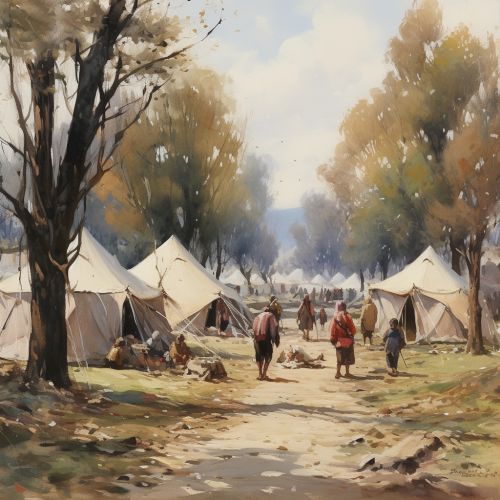Refugees
Definition and Legal Framework
A refugee is a person who has been forced to leave their country in order to escape war, persecution, or natural disaster. The term is defined and protected in international law by the 1951 United Nations Convention Relating to the Status of Refugees and its 1967 Protocol. The Convention establishes the principle of non-refoulement, which prohibits the return of a refugee to a country where they face serious threats to their life or freedom.


Causes of Displacement
There are numerous causes of displacement that may lead to an individual or group becoming refugees. These can include armed conflict, such as civil wars or international wars, persecution on the grounds of religion, race, nationality, political opinion or membership of a particular social group, and environmental factors such as natural disasters or climate change.
Refugee Status Determination
Refugee Status Determination (RSD) is the legal or administrative process by which an asylum seeker's claim to refugee status is assessed by a government or a UNHCR officer. The process varies from country to country, but generally involves an assessment of the individual's fear of persecution and the conditions in their country of origin.
Refugee Rights and Obligations
Refugees have certain rights under international law, including the right to non-refoulement, the right to work, the right to education, and the right to freedom of movement. They also have certain obligations, such as the obligation to abide by the laws and regulations of their country of asylum.
Global Refugee Crisis
The global refugee crisis refers to the large numbers of people displaced by conflict, persecution, and environmental factors worldwide. As of 2020, the UNHCR estimates that there are nearly 80 million forcibly displaced people worldwide, including 26.3 million refugees.
Solutions and Challenges
Solutions to the refugee crisis include resettlement in third countries, local integration in the country of asylum, and voluntary repatriation to the country of origin. However, these solutions are often fraught with challenges, including political resistance, logistical difficulties, and ongoing instability in the country of origin.
Impact on Host Countries
The arrival of large numbers of refugees can have significant impacts on host countries, affecting social, economic, and political dynamics. These impacts can be both positive and negative, and are often the subject of contentious debate.
